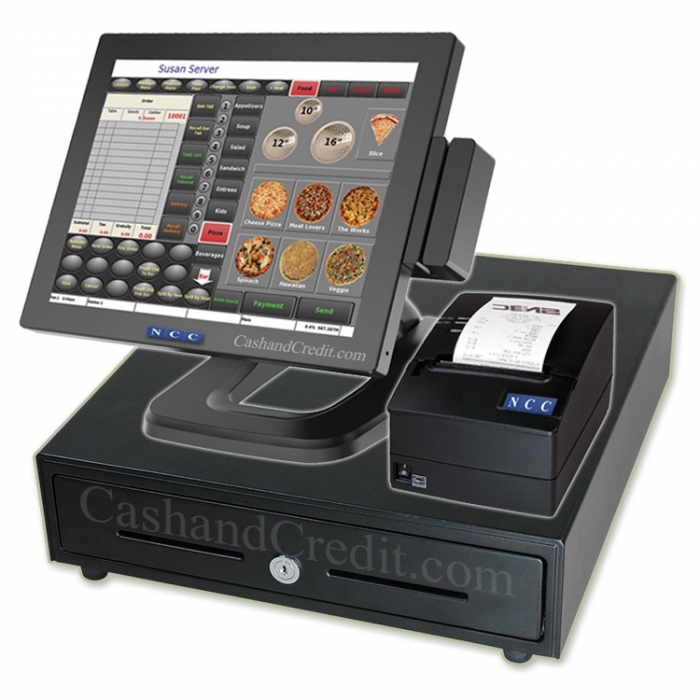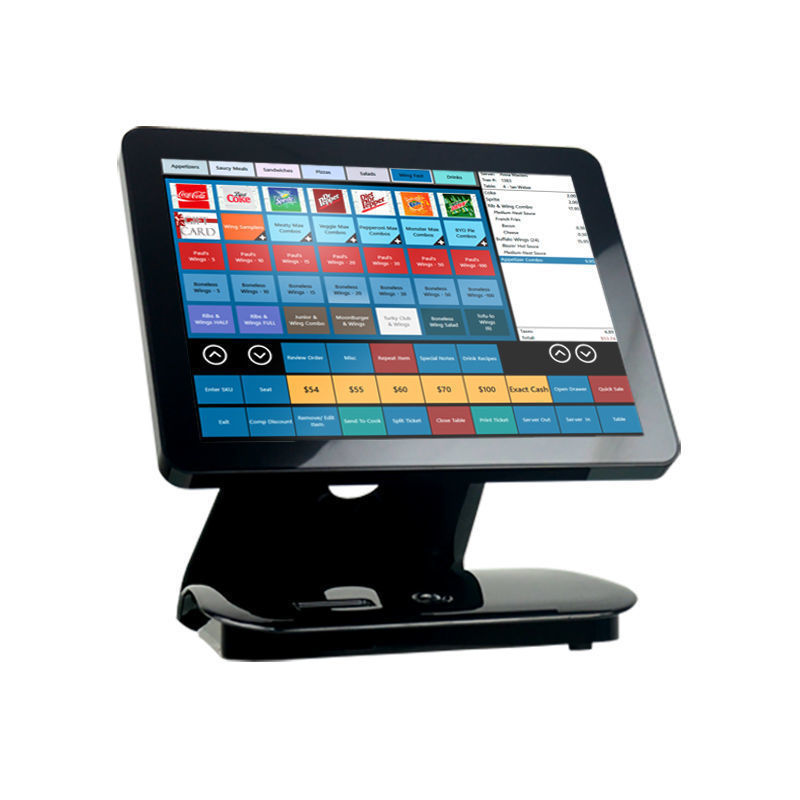Understanding the Value of POS Software in Modern Retail Operations
In today's retail landscape, the function of POS software has come to be significantly considerable. These systems have actually transformed from basic money signs up to complex devices that enhance various elements of operations. They not only enhance transactions however likewise give understandings that can form company approaches. Understanding how these systems impact client experience and supply administration is vital for any kind of store looking for to continue to be affordable. The ramifications of these improvements call for more exploration.
The Evolution of POS Software: From Purchase Processing to Comprehensive Solutions

Enhancing Consumer Experience Via Advanced POS Includes

Streamlining Inventory Monitoring With Integrated POS Systems
Integrated POS systems play an essential duty in improving inventory administration by automating procedures that traditionally needed substantial manual initiative. These systems make it possible for retailers to track supply levels in genuine time, removing discrepancies that commonly develop from hand-operated supply counts. With features such as barcode scanning and automatic supply replenishment informs, services can preserve excellent inventory levels without overstocking or stockouts.Furthermore, incorporated POS systems assist in precise forecasting by examining historical sales data, permitting retailers to make enlightened getting choices. This anticipating ability aids companies adjust to altering consumer demands and seasonal fads a lot more effectively.Additionally, the centralization of supply data across multiple sales networks boosts presence, enabling stores to manage their stock much more successfully. Ultimately, the combination of POS systems right into stock administration simplifies operations, reduces human mistake, and adds to boosted success.
Real-Time Sales Tracking and Reporting for Informed Decision-Making

Accurate inventory administration prepares for effective sales monitoring and coverage. Real-time sales tracking enables stores to monitor sales performance as it takes place, supplying prompt understandings into consumer purchasing patterns and fads. This capability allows companies to react quickly to variations sought after, optimizing stock levels and decreasing overstock or stockouts.Moreover, incorporated POS systems assist in the generation of in-depth records, highlighting key metrics such as sales by group, time periods, and individual products. Such reporting abilities encourage retailers to make data-driven choices, determining successful approaches and areas needing enhancement.
The Role of POS Software in Client Relationship Monitoring
POS software plays a necessary duty in enhancing customer partnership management by allowing stores to apply personalized advertising approaches. By examining client data, services can customize promos and interactions to meet private choices. Furthermore, these systems facilitate the advancement of improved commitment programs that encourage repeat company and enhance customer interaction.
Personalized Advertising Strategies
As sellers progressively seek to boost consumer commitment and interaction, individualized advertising techniques have actually arised as an essential component of effective consumer partnership management. POS software plays an essential duty in this procedure by accumulating and examining customer information, enabling stores to tailor advertising and marketing efforts to specific choices and purchasing habits. By leveraging insights from purchase histories, sellers can develop targeted promotions and customized communications that resonate with consumers, cultivating a much deeper link. Additionally, the assimilation of POS software with consumer relationship management systems enables for seamless monitoring of consumer communications, making sure that marketing methods remain appropriate and timely (Restaurant POS Software). This data-driven method not just enhances client satisfaction but additionally drives sales and urges repeat organization, strengthening the merchant's market position
Enhanced Loyalty Programs
Stores are progressively identifying the importance of commitment programs in cultivating lasting client partnerships and enhancing overall engagement. POS software plays a crucial function in the advancement and management of these programs, permitting stores to track client purchases, preferences, and behaviors efficiently. By leveraging information analytics, organizations can create tailored rewards and incentives that resonate with specific clients, consequently increasing involvement in commitment programs. In addition, POS systems enable smooth assimilation with mobile apps and electronic platforms, facilitating easy access to rewards and promotions. This not just enhances consumer satisfaction yet also drives repeat company. Ultimately, POS software encourages retailers to cultivate deeper links with their clients, changing occasional shoppers into dedicated patrons through targeted and meaningful engagement strategies.
Integrating POS Systems With E-Commerce Platforms for Omnichannel Success
To attain true omnichannel success, seamless combination between point-of-sale (POS) systems and ecommerce systems is important. This integration permits merchants to link their inventory management, ensuring that product availability is precisely mirrored across both online and physical stores. Consumers take advantage of a natural buying experience, where they can quickly change between channels without encountering discrepancies.Furthermore, incorporated systems assist in real-time data sharing, enabling organizations to evaluate consumer behavior and choices a lot more efficiently. This data-driven strategy permits merchants to tailor marketing methods and enhance supply degrees, inevitably enhancing consumer complete satisfaction and driving sales.Additionally, the capacity to process deals across platforms simplifies operations, lowering the danger of errors and improving general performance. As sellers increasingly adopt omnichannel approaches, the integration of POS systems with e-commerce platforms stays a crucial element in achieving lasting growth and preserving affordable advantage in the vibrant retail landscape.
Future Fads in POS Innovation and Their Impact on Retail Workflow
As retail operations develop, my review here future fads in POS innovation are readied to blog here reshape the landscape substantially. The surge of cloud-based services, developments in mobile POS systems, and the advantages of AI integration are amongst the key developments prepared for to enhance effectiveness and consumer experience. These innovations guarantee to streamline processes and promote a more vibrant retail environment.
Cloud-Based Solutions Rise
With the boosting dependence on modern technology, cloud-based POS services are changing retail operations by offering improved adaptability and scalability. These systems make it possible for retailers to accessibility real-time data from anywhere, helping with much better decision-making and customer care. By leveraging cloud facilities, businesses can lower ahead of time expenses connected with hardware and software installations while making certain smooth updates and upkeep. Furthermore, cloud-based services sustain multi-location administration, allowing sellers to synchronize supply and sales across numerous outlets effortlessly. This adaptability is essential in today's fast-paced market, where customer choices change rapidly. As more sellers adopt these services, they can anticipate better operational performance and a much more responsive method to market needs, inevitably enhancing consumer contentment and loyalty.
Mobile POS Innovations
The advancement of retail technology proceeds to form operations, specifically with the increase of mobile POS developments. These systems enable stores to process deals anywhere within the store, boosting customer involvement and improving check out procedures. Mobile POS remedies enhance stock monitoring by allowing instantaneous accessibility to stock levels, helping team assist clients extra efficiently. On top of that, they facilitate customized shopping experiences via incorporated client data and commitment programs. As mobile phones come to be increasingly innovative, retailers are taking on features such as contactless settlements and electronic receipts, furthermore maximizing the acquiring trip. The change in the direction of mobile POS not only boosts functional effectiveness yet likewise lines up with the expanding consumer choice for convenience, making sure that merchants stay competitive in a swiftly advancing market.
AI Assimilation Advantages
AI assimilation stands for a transformative leap in POS modern technology, offering retailers a myriad of advantages that improve functional efficiency and client experience. By leveraging maker discovering algorithms, sellers can analyze acquiring patterns and enhance supply monitoring, reducing waste and stockouts. In addition, AI-powered analytics offer tailored advertising and marketing suggestions, allowing targeted promos that enhance customer engagement and loyalty. Additionally, chatbots and online aides enhance customer care, allowing for quicker resolution of queries and enhancing the general buying experience. Anticipating analytics can likewise anticipate demand trends, enabling smarter staffing and source allocation. Eventually, the assimilation of AI in POS systems empowers sellers to make data-driven decisions, cultivating an one-upmanship in an ever-evolving retail landscape.
Regularly Asked Concerns
What Are the Prices Connected With Implementing POS Software?
The costs related to applying POS software can consist of software licensing fees, hardware expenditures, installment costs, training expenses, and continuous upkeep. Each element adds to the general investment required for a successful implementation.
Just How Can Tiny Retailers Gain From POS Systems?
Little stores can profit from POS systems through improved purchase efficiency, streamlined supply management, and enhanced customer understandings. These systems enable better decision-making, inevitably bring about boosted sales and consumer check over here complete satisfaction in open markets.
What Hardware Is Needed for a POS System?
A normal POS system calls for crucial hardware parts, including a touchscreen monitor, cash money drawer, barcode scanner, invoice printer, and payment terminal. These components work with each other to facilitate efficient transaction handling and stock administration for sellers.

Can POS Software Be Custom-made for Specific Retail Demands?
POS software can undoubtedly be personalized to satisfy specific retail demands. Restaurant POS Software. This versatility enables services to tailor attributes, interfaces, and reporting tools, boosting operational effectiveness and providing an extra tailored experience for both team and consumers
Just How Protected Is Customer Data in POS Systems?
The security of customer data in POS systems differs widely. Several systems apply security, protected gain access to controls, and regular updates, but vulnerabilities can still exist, requiring ongoing vigilance and positive procedures from sellers to shield sensitive information.